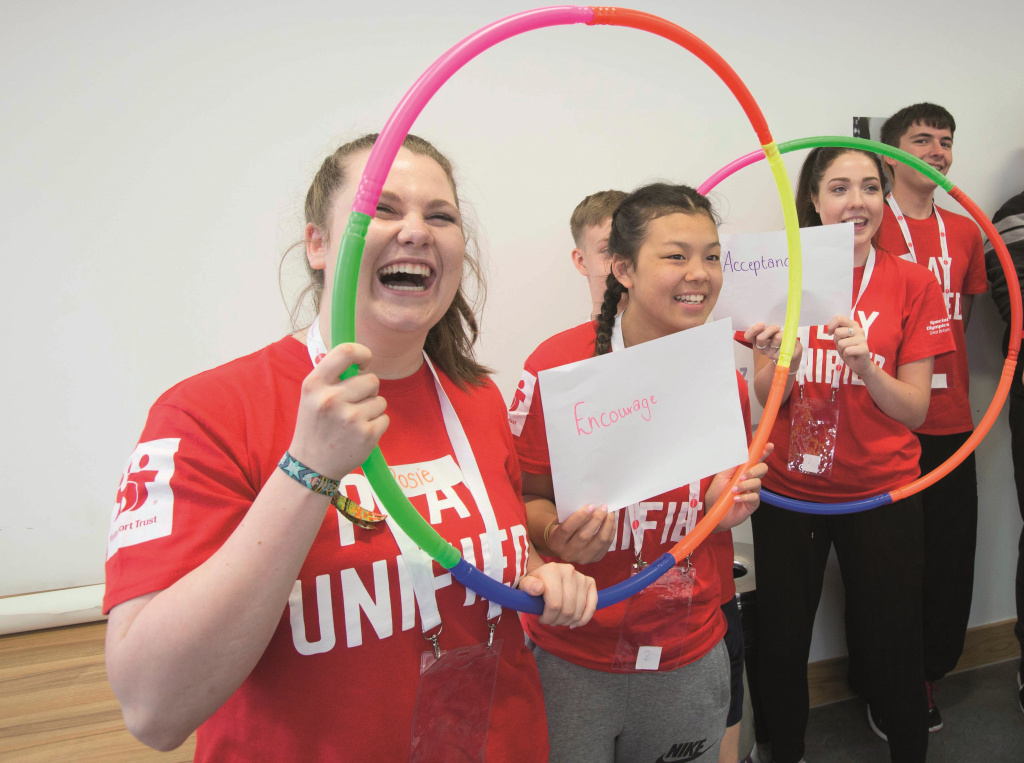
The Youth Sport Trust (YST) hold a passionate belief in the power of sport and physical activity to improve all young people’s well-being, leadership skills and achievement. Not only is there a strong body of medical research linking physical activity to increased physical and mental well-being in children, there is now a fast growing evidence base citing sport as an effective developer of leadership and employability skills. Indeed, research from Sheffield Hallam University estimates that household earnings for both non graduates and graduates who play sport (compared to those who don’t) can be higher by up to £7k per annum. When you add that up over a lifetime it reinforces how important it is to get all our young people healthy, active and involved.
In light of this, the YST’s ‘Sporting Chance’ strategy has had a very clear focus on raising funding to deliver solutions to schools and youth practitioners, in order to equip them to make their PE and sport offers more inclusive for all students. This couldn’t be timelier as the evidence shows that there is work to be done...
Currently;
- Young people with SEND take part in sport less than their peers, with only half managing to take part in sport just once a week
- 84% of disabled students would like to do more sport when compared with their non-disabled peers – suggesting that they do not currently have the opportunities to do enough
- 63% of people with disabilities feel they have fewer opportunities to volunteer in sport compared to their non-disabled peers - and therefore less opportunity to demonstrate the ‘social action’ work that employers value
The Youth Sport Trust Inclusion Schools network
In response to some of these issues, and as part of its Sporting Chance strategy, the YST have established a network of 60 expert ‘Inclusion schools’ that reach across all counties in England. These cross phase and special schools have a focus on supporting other schools and their staff to develop their comfort and competency in providing inclusive PE and sport opportunities to all.
It is also this network of schools that has delivered on the DfE funded ‘Project Ability’ programme. Project Ability involves a range of initiatives, including ‘Step into Sport’ inclusive leadership events and the ‘TOP Sportsability’ resource. The Step into Sport camps bring together young disabled and non-disabled leaders to work together, developing their leadership skills, in order to generate more opportunities for disabled people in sport. Early evaluation of these events from Canterbury Christ Church University has cited 90% of young SEND and non SEND leaders indicating that they are now a more confident leader.
‘Top Sportsability’ is a free online resource for all schools. It offers video clips and downloadable content showing ideas and strategies around the inclusion of young disabled people in physical activity and sport. Developed with the support of sport national governing bodies, it covers models of inclusion and how to adapt a range of sports to encourage competition and universal access to the national ‘School Games’ competition. Any practitioners wanting to know more about the innovative work of the YST inclusion schools and how they could benefit from their delivery of the DfE funded Project Ability please contact Gary Grieve, Project Officer - Inclusion and Diversity at gary.grieve@youthsporttrust.org